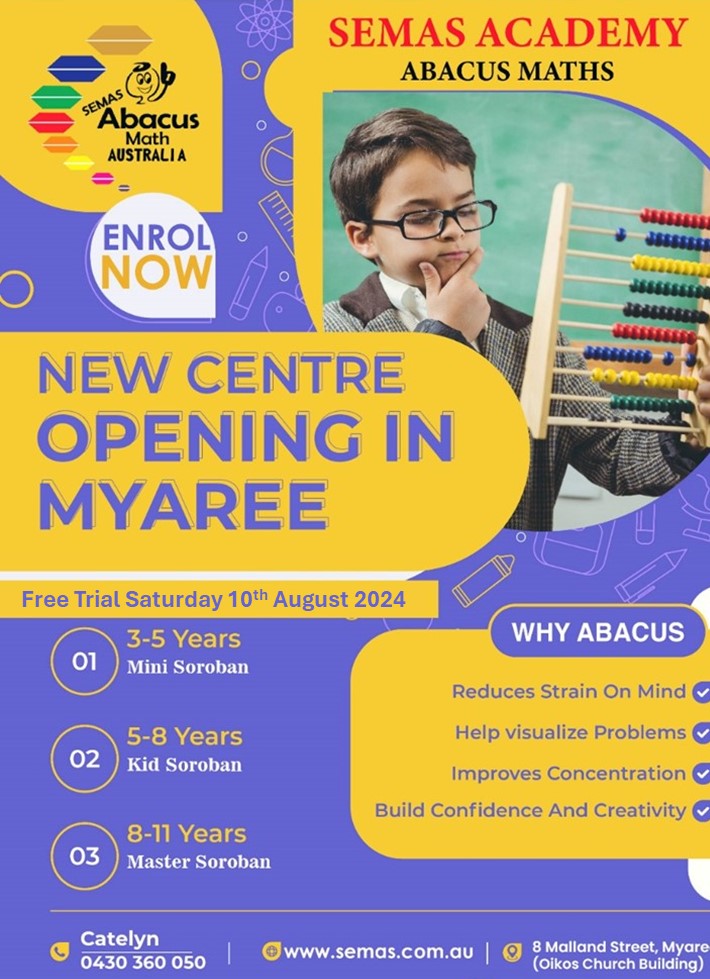As parents, we all want to give our children the best possible start in life. One of the most important foundations we can provide is confidence in mathematics. While digital tools and apps are popular, many families are rediscovering a timeless method: abacus education. Through structured abacus classes, children not only master arithmetic but also build memory, focus, and problem-solving skills that last a lifetime.
But with so many programs available, how can parents choose the right one? This guide offers practical advice on evaluating abacus maths programs, from teacher quality to long-term benefits, so you can make the best decision for your child.
Understanding Abacus Education
At its core, abacus education uses a simple device with beads to teach children arithmetic. However, the real magic happens when children progress to “mental maths” by visualizing the abacus in their minds. This develops speed, accuracy, and confidence in solving mathematical problems.
Beyond numbers, abacus maths improves concentration, creativity, and memory retention. Choosing the right abacus classes ensures your child gets the full benefit of this holistic learning method.
Key Factors Parents Should Consider
1. Teacher Qualifications and Experience
The quality of abacus education largely depends on the instructor. Look for teachers who:
- Are certified in internationally recognized abacus methods.
- Have experience working with children of different learning styles.
- Can combine patience with engaging teaching techniques.
An experienced teacher doesn’t just teach abacus maths; they inspire confidence and make learning enjoyable.
2. Class Structure and Curriculum
Not all abacus classes follow the same program. Some provide a clear, step-by-step syllabus with different levels, while others may be less structured. Parents should ask:
- Does the program have progressive levels (beginner to advanced)?
- Are both physical abacus practice and mental maths included?
- How often are students assessed for progress?
A strong curriculum ensures your child develops skills steadily and gains long-term benefits from abacus education.
3. Online vs In-Person Abacus Classes
With the rise of digital learning, many providers now offer online abacus classes. While convenient, parents should weigh the pros and cons.
In-Person Benefits:
- Hands-on interaction with the abacus.
- Direct guidance from the teacher.
- Group learning and peer motivation.
Online Benefits:
- Flexibility for busy families.
- Access to quality teachers regardless of location.
- Recorded lessons for practice.
The best option often depends on your child’s learning style. Younger children may thrive in physical classrooms, while older students may enjoy the independence of online learning.
4. Student-to-Teacher Ratio
A smaller class size allows teachers to give personalized attention. In large groups, children may struggle to keep up or lose interest. Parents should look for abacus education programs with low student-to-teacher ratios to ensure quality learning.
5. Long-Term Benefits Beyond Maths
While parents often enroll their children for better maths skills, abacus education offers much more. Consider whether the program emphasizes:
- Focus and concentration – vital for schoolwork.
. - Memory enhancement – useful across all subjects
- Confidence building – reducing maths anxiety.
- Problem-solving skills – preparing for future academic challenges.
The best abacus classes help children grow not only as learners but also as confident individuals.
6. Opportunities for Competitions and Recognition
Many children are motivated by healthy competition. Ask if the program offers:
- Local or international abacus competitions.
- Certificates for completing levels.
- Recognition for outstanding performance.
These milestones help keep children engaged and give parents a clear sense of progress in their child’s abacus maths journey.
Red Flags Parents Should Watch Out For
When evaluating abacus classes, beware of:
- Overly generic programs with no clear syllabus.
- Teachers who rely only on rote memorization.
- Promises of “instant results” without effort.
- Lack of regular progress reports.
True abacus education requires practice and consistency. If a program seems too good to be true, it probably is.
Why SEMAS Australia Stands Out
In Australia, SEMAS has become a trusted name in abacus education, offering structured programs designed to unlock children’s full potential. Parents choose SEMAS because:
- Teachers are internationally certified and experienced.
- Classes are tailored to different age groups and learning levels.
- Both in-person and online options are available.
- Students have opportunities to join competitions and earn recognition.
By enrolling in SEMAS, parents know their children are receiving the highest quality abacus maths training available.
Conclusion: Making the Right Choice for Your Child
Selecting the right abacus classes is one of the best decisions a parent can make to support their child’s academic and personal growth. By considering teacher quality, curriculum structure, class format, and long-term benefits, you can ensure your child gets the most out of abacus education.
More than just numbers, abacus maths equips children with focus, confidence, and lifelong skills that extend well beyond the classroom.
Call-to-Action
Ready to empower your child with the lifelong benefits of abacus education?
👉 Explore SEMAS Australia’s proven abacus classes today and discover how abacus maths can transform your child’s learning journey. Visit SEMAS Australia to learn more and enrol now.



